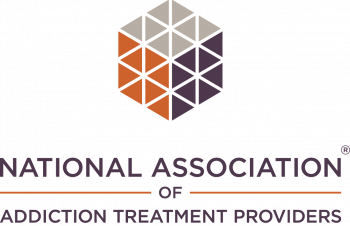One of the first things you learn about in rehab is triggers that may have started and fueled your addiction. Triggers can range from emotions, and mental health conditions, to being around certain people or places. A situation may arise that leads to an addiction relapse. Before you know it, you are drinking or taking drugs again after being clean for several months.
Relapse triggers can happen all at once or build over time. When they occur, they can be extremely difficult to handle alone. Relapse prevention and aftercare programs in Maryland are designed to help people in recovery avoid or manage triggers effectively so that they do not fall back into addiction. Below, we look at five common triggers of relapse that you should be aware of.
Common Addiction Relapse Triggers
1. Stress
Stress may be the leading cause of addiction relapse due to the overwhelming emotional impact it can have during recovery. When problems start building at home, work, or school, stress can render you emotionally weak, leaving you vulnerable to the temptation to drink or take drugs.
When you become anxious or depressed, try to avoid isolation. When you are alone, you may be tempted to relapse in order to cope with your stress. Instead, spend time with friends or family or reach out to your therapist. You can also spend time in meditation or mindfulness, which will help you put your stress into perspective. You may also want to reach out to someone in your alumni program in Maryland.
2. People or Places Associated with Addiction
People you used to drink or take drugs with are potentially relapse triggers. Some of them may try to encourage you to continue taking the substance after rehab. These people are triggers because they bring up many of the same feelings you used to have when you were hanging out with them.
Being in certain places may also trigger your emotions. If you walk into a bar or go to a party, you may have an intense craving to drink. The temptation can be too overwhelming for you to say no. To stay on track, you may need to avoid these places or make new friends.
3. Negative Emotions
You may struggle with mental health issues such as:
- PTSD
- Bipolar disorder
- ADHD
- Depression
- Borderline personality disorder
If so, you may have turned to drugs or alcohol as a form of self-medication. The negative emotions that you feel can be natural triggers, causing you to want to go back to your addiction to get temporary relief.
Negative emotions are a normal part of life and something that you must eventually feel comfortable with. Try journaling, meditation, or mindfulness to identify and work through your emotions. Remember, it is also important to take ownership of your emotions. The more you identify and own your emotion, the more equipped you become to manage them without drinking.
4. Seeing the Object of Your Addiction
Few things can trigger an addiction relapse as much as being the same room as the object of your addiction. For instance, you may see a glass of wine or smell marijuana. Suddenly, the sensations and emotions come back, making you desire the substance. It can difficult to say no when you are face to face with the object.
The best way to combat temptations is to focus on the new life you are building and the goals you are trying to reach. If you are face to face with drugs or alcohol, then think about the consequences of relapsing. Immediately remove yourself from the situation and walk away. You’ll be glad you did.
5. Celebrations
Social gatherings create positive environments that can make you feel on top of the world. These types of situations can also act as relapse triggers. You may feel like you are in control and confident that you can handle one hit or drink. However, you may quickly find that you can’t stay in control.
One drink can easily lead to an addiction relapse and derail your recovery goals. If you must attend a social event that you can’t get out of, then take an accountability partner with you. Also, make sure that you are able to drive or get an Uber. Stay in control of the situation and try to leave the party early if there is alcohol present.
Learn More About Addiction Relapse Prevention at TruHealing Gaithersburg
If you are struggling with addiction relapse, then now is the time to get help. TruHealing Gaithersburg offers comprehensive addiction treatment therapies that can help you get clean and stay clean for life. Contact TruHealing Gaithersburg at (833) 625-0398 to learn more about your treatment options.









